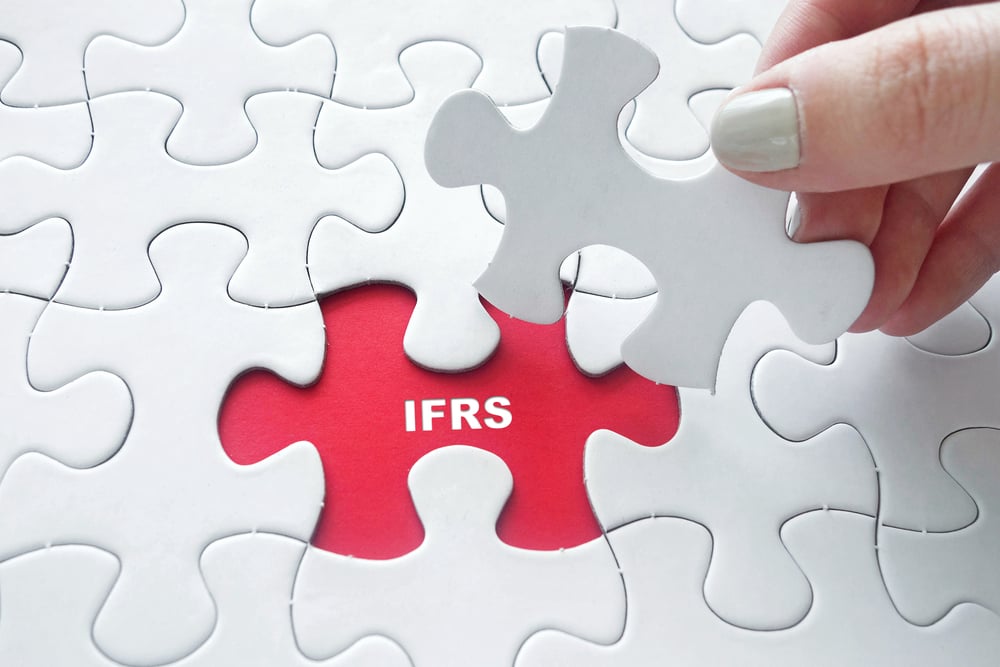10 reasons why lease accounting software can coexist with ERP systems
There are at least 10 good reasons why IFRS 16 management is better solved with a specialized lease accounting software. This will make your ERP system work even better.

The Enterprise Resource Planning (ERP) is the backbone of digital tools used by the finance department. When ERP is used at its best, financial data is linked together. Also linked, are data from systems for production, e-commerce, payroll, HRM and CRM.
ERP software and systems are global in nature. Thus, the greatest emphasis is placed on developing outstanding functionality in areas that are common to most companies. ERP systems usually don't offer functionality unique to individual countries and other jurisdictions, to industries and many other considerations.
There are a significant number of software that retrieves data from ERP and that creates data for ERP. Such software may or may not offer seamless ERP integrations. Invoice dispatch systems and incoming invoice processing systems, which meet national requirements, are familiar to most people. Period-end closing, reporting and budgeting are other examples of processes that are supported by solutions other than ERP.
In 2019 the IFRS 16 accounting standard set completely new requirements for how to treat leasing agreements.
We now believe lease is best handled outside the ERP system.
It will improve accounting for leases and strengthen control with lease liabilities.
We see at least 10 reasons to let a lease accounting software coexist with the ERP system
1. Lease estimates and calculations
Enterprise Resource Planning software and systems are best suited for bookkeeping. However, leasing agreements often require you to work with the contracts, make preliminary calculations and test different scenarios. Lease accounting software is created for the entire process, including changing the interest rate.
2. Changes in lease terms
Sometimes your growth differ from your targets, leading to changes in the need for leased equipment or real estate. A leasing contract often contains options related to the extension and expansion of the customer relationship. These are changes that can be made easily in a lFRS 16 software. If done in the ERP system, however, it would be significantly more challenging.
3. Using Excel for IFRS 16 shouldn't be an option
In practice, many people end up using Excel for calculations. This creates many weaknesses and increases the risk of making unnecessary mistakes. With more than 15 agreements to handle, our and the auditors' experience is that contract management becomes very challenging. A cloud-based solution, with waterproof calculations, will save time and prevent personal dependence.
Consumer price indices are an important part of the maintenance of rental and leasing agreements. Do you have an automatic correction for price changes? Which indices should be used? Should all adjustments be made manually for all agreements in all countries?
4. Proximity to the contracts improves lease management
Most times, there is a person outside the finance department who is responsible for a leasing contract. This person typically does not have access to the ERP system. Using a IFRS 16 software with strong contract management features changes the situation. He or she can more easily than the finance department keep the agreement data up to date.
Imagine how much time you could save if contract managers updated contract meta data. Then the lease accounting could be done automatically.
5. Register numbers only once
IFRS 16 leases are usually registered in several places - both in ERP/Excel and where agreements are normally registered. In a contract management software with lease accounting functionality, all roles related to the agreements will use the same system. This makes it easy for the finance department to extract the correct lease data for the ERP system and financial statements.
6. Manage leases smarter
IFRS 16 should be about far more than compliance. Actually, managing leases better can lead to clear business gains. When the finance department has a perfect view of all contracts, the company can cut unnecessary costs. Also, it improves the speed and precision of budgeting.
Many companies are already using centralized data to gain better control over leasing agreements. According to PwC, it makes sense to gather data centrally gathered. Companies then have the opportunity to reduce risk and achieve cost savings before entering into new leasing contracts.
However, many companies are still in the infancy of understanding and analyzing their leasing agreements and stored data. More than half of the companies that PwC surveyed used spreadsheets to some degree. Almost 40 percent said that they would probably use a new IT solution over the next two years.
7. Note requirements
The ERP system is not the place for note production for IFRS 16 reporting. Still, notes are an important part of the annual report. With a specialized software for leasing contracts, the notes to the financial statement can be retrieved automatically.
A lease accounting software can also produce the IFRS 16 report. This report shows the process from opening balance sheet to closing balance sheet - per month, quarter and year. In addition, you also get the the journal report. It shows the journal entries with the correct account number on all IFRS 16 leasing agreements.
8. Demanding to build experience
A company normally performs IFRS 16 calculations annually or quarterly. This infrequent lease management can be challenging for team members in the finance department. Repeating the relatively complex processes often lead to stress and unnecessary use of resources. In addition, there is the risk associated with personal dependence when employees take the experience out the door when they quit.
9. Saves auditor hours
Several of our clients say that they previously spent a long time carrying out the IFRS 16 calculations. Then the auditor did the same calculations again, and often there were several rounds back and forth. With the calculations made in a lease accounting software, the auditor can do random samples and report back. This saves many expensive hours for the company.
10. ERP consultants often lack knowledge
Many companies rely to some extent on advice from external ERP consultants, especially when using on-premises ERP. However, leasing value estimates are a specialized calculation and not considered a core functionality of ERP. Very few ERP consultants have the necessary experience and understanding of accounting standards for leases and configuration requirements.



